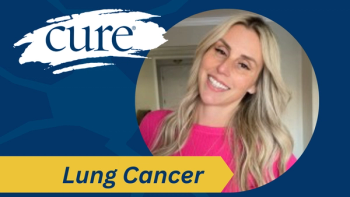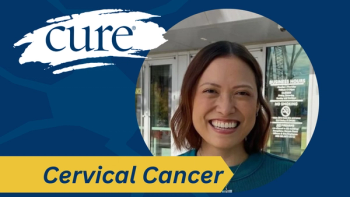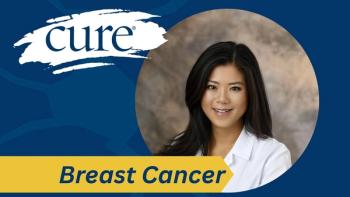
Rethinking the Way I Speak About Cancer
Words are powerful, and the way we use them says a lot about the way we think. It's time to rethink the way we speak about cancer.
From the time a child is born, words are working to escape from their vocal cords. Infants cry when uncomfortable and quickly learn they have the ability to have their needs met. As the infant grows older, crying isn’t the only sound a child makes. Soon cooing and giggling begin. The child’s natural desire to be heard is evident. Toddlers quickly learn to form simple words by mimicking their parents and in so doing, learn to use those words for their benefit. As the child grows, the vocabulary increases and soon language brings words to life.
The spoken word is powerful. A conglomeration of words pressed down, shaken together and poured out form a thought. Those thoughts, when shared verbally, allow us to communicate with one another and while it’s possible to communicate without the necessity of words, words help the listener understand more clearly.
In the Oxford English Dictionary, there are over 250,000 distinct words listed. The dictionary, however, does not contain all the words in our vocabularies today. There are so many forms of slang that it would be nearly impossible to capture all of the words used in one place.
Words equip us and help develop our thought patterns. One word can influence the expression of genes that regulate physical and emotional stress. Positive words, such as “peace” and “love,” can alter the expression of those genes by strengthening areas in our brains leading to more cognitive functioning. Conversely, negative language can disrupt neurochemicals that help protect us from stress. Negative words can increase activity in the fear center of the brain, the amygdala. When this happens, stress hormones increase and brain function is disrupted.
Lately, I’ve started focusing on my words, especially the words I speak about cancer. I’ve found myself holding tightly to cancer. In conversations with family or friends, I often catch myself saying, “...my cancer.” I have no idea why I’ve been doing this. Why would I want to hold on to breast cancer as if it were a prized possession? I never wanted it and it certainly wasn’t mine alone. There are hundreds of thousands of people with cancer.
Every time I’ve caught myself saying, “…my cancer,” I would picture myself holding the contained cancer tightly in a box close to my chest. I carried that box around day and night for reasons I couldn’t understand. My cancer. It was mine. This evil, decimating THING was mine. But I didn’t want it. I didn’t need it. I wanted to get rid of it. So I had to change the way I thought about it.
Soon, I began shifting my words. Instead of saying, “…my cancer,” I started using the phrase, “…the cancer,” in conversation. The cancer. THE cancer. The word “the” changed cancer from a personal possession into a foreign object. That was better. At least it put a little distance between me and the disease, but it still wasn’t good enough.
I pushed cancer even further away by dropping the word, “the.” I made a determined effort, when talking about cancer, to use only the word cancer without the article of speech, “the.” In so doing, I brought even more distance between myself and cancer. “My cancer” had moved from “the cancer” to just “cancer.” But even the word “cancer” alone seemed huge. Using the word “cancer” in conversation seemed all encompassing. Cancer seemed to have moved from the tiny, contained box that was all mine, into a huge massive tentacled beast that engulfed all of humanity.
That’s when it hit me. It didn’t really matter whether I said, “my cancer,” or “the cancer” or just “cancer.” The very mention of the word strikes fear into the heart of the hearer.
But we have to talk about it. Even if we don’t want to, we have to share our stories. It’s important for us to speak our truth but we need to take care doing so.
Words have the power to heal or to wound. Many people think before speaking and others do not. It’s dangerous to spout words without taking time to filter them. Once words have been spoken, they can never be called back.
So how are we to talk about cancer? Let’s not give it more power than it deserves, in fact, let’s try to strip it of its power! By sharing our stories of struggle, pain, endurance and resilience, we remove cancer’s power. Our words of positivity trump cancer’s negativity.
Rethink the way you speak your cancer vocabulary. Don’t claim cancer as your own by saying, “my cancer.” Let’s not celebretize cancer by saying, “the cancer.” The word cancer doesn’t deserve to be in any of our vocabularies but sadly, for many of us, it is there.
The old, familiar childhood taunt, “Sticks and stones may break my bones, but words can never hurt me,” isn’t always true. The word, “cancer,” hurts not only when it’s spoken, but when it’s experienced.
Never forget, just as Glinda the Good Witch, in the movie, The Wizard of Oz, told Dorothy, “You had the power all along, dear.” You have the power over the words you speak. Speak life over yourself. Let’s negate the power of the word cancer together, one utterance at a time.




